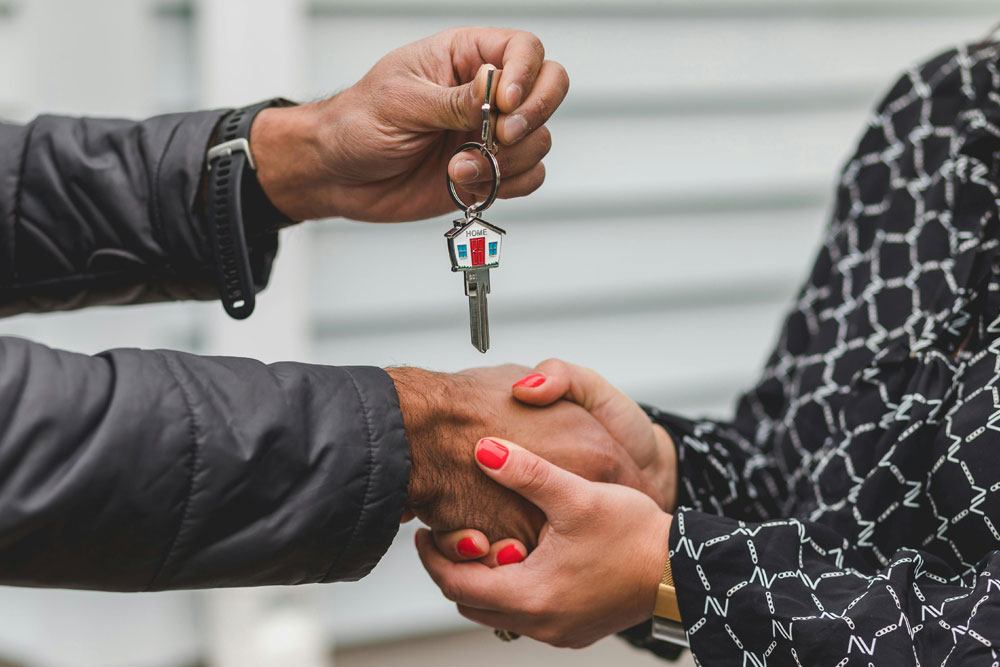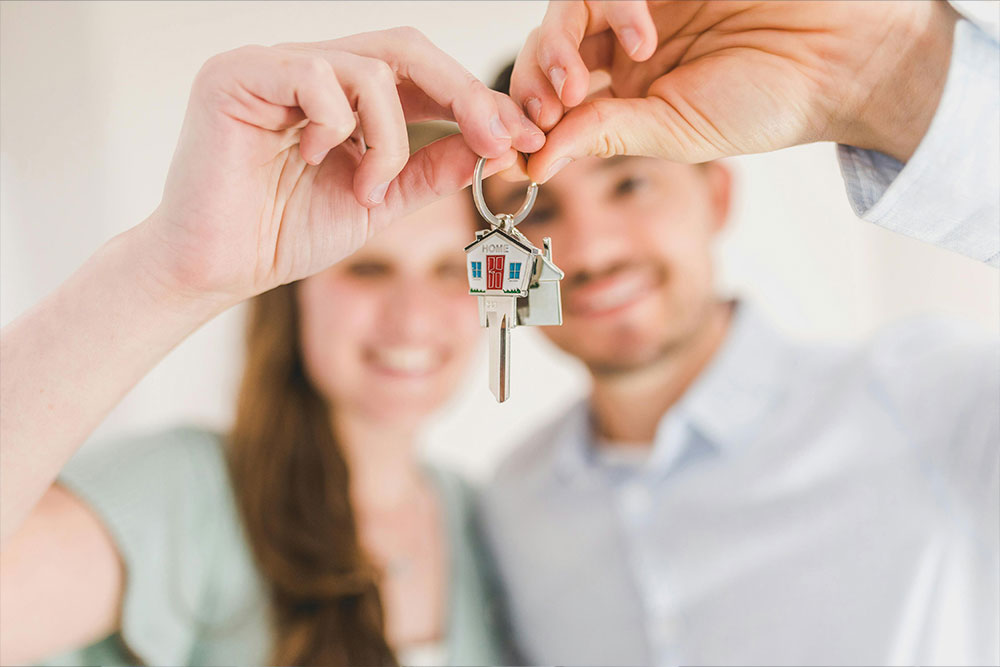Buying investment property in the UAE’s dynamic real estate market requires a strategic approach. First-time investors may find it challenging to navigate this sought-after arena.
To assist, we’ve compiled 23 essential questions every investor should consider before purchasing. These cover key aspects like property location, market trends, and legal considerations, helping ensure a secure and profitable investment. Here’s what to ask to make informed decisions in the UAE’s evolving real estate sector.
- ROI, Location & Type
- Market Research, Investment & Visa
- Plans, Worth & Maintenance Checks
- Property & Neighbourhood Check
Questions for Investment Property Buyers: ROI, Location & Type
Before committing to an investment property, it’s essential to ask the right questions. This guide will help you navigate key considerations to ensure a profitable and informed purchase.
1. Are You Investing for Capital or ROI Appreciation?
Knowing whether to invest in capital or ROI appreciation is important.
- ROI (Return on Investment): Read up on how much profit you will be able to make out of the money that is invested into the property.
- Capital Appreciation: Investing in the most desirable area is recommended.
Understanding this is crucial because it aligns your investment strategy with your financial goals and risk tolerance.

2. Would You Prefer for Short-Term or Long-Term Rentals?
Some properties perform well if they are on a short-term lease. Areas such as Downtown Dubai or Dubai Marina are great for the short term. On the other hand, Dubai real estate investment on long-term leases can yield well for areas such as Dubai Hills.
Knowing this is important because it impacts your rental income stability, property management requirements and overall investment strategy.

3. Should I Go for a Ready-To-Move or Off-Plan Property?
Deciding between a ready-to-move-in property and an off-plan investment is crucial, as off-plan properties are still under construction, while ready-to-move-in properties are completed and ready for occupancy.
- Off-Plan Properties: Prices are lower, properties might gain value over time and down payments are easier.
- Ready-To-Move Properties: Yield can offer to end up being higher.
This decision is crucial because it affects your investment timeline, potential returns and risk exposure. Ready-to-move-in properties offer immediate rental income and occupancy, while off-plan properties in Dubai are relatively new projects that may provide higher appreciation potential but come with construction and market risks.
4. What Would Be the Right Location?
The right real estate investments in prime locations can be highly rewarding, significantly influencing ROI and capital growth. Additionally, your choice of location can impact the property’s resale value and overall market worth.
The Data Guru from PropertyFinder.ae can help you locate the best properties, sorting them by location and price.

5. Which One Should I Choose Between Leasehold and Freehold Ownership?
Choosing between leasehold and freehold ownership depends on your goals.
- Leasehold: You own the property for a set time, usually with lower upfront costs but some limitations.
- Freehold: You own the property and the land, giving you more control and potential for value growth.
Think about your financial goals and how long you plan to invest when deciding.
6. Does Property Size Matter?
Yes, property size matters because it affects the market value, rental income potential and overall appeal to buyers and tenants. Larger properties may offer higher returns but also come with higher costs and maintenance.
It is one of the factors impacting Dubai property investments. Your ROI returns highly depend on it. Sometimes, smaller units can bring a higher return and other times, bigger units can be beneficial to invest in.
Questions for Investment Property Buyers: Market Research, Investment & Visa
7. Should I Keep an Eye on Market Watch?
Yes, you should. For instance, Market Watch Q2 2024 tells you all that you need to know about recent Dubai market trends and overall insights. It is updated every quarter year and can help you make informed decisions when buying investment properties across the UAE.
8. Are Branded Residencies Better?
Some might want to invest in branded residencies. Here are the pros and cons of doing so:
- Pros: These residencies attract people with high net worth, are of better quality, and are often maintained by the brand.
- Cons: The property can get too costly, and the return highly depends on the market trends.
9. What Are The Best Areas To Invest In?
When buying an investment or residential property in Dubai, you must look for an area that offers good amenities, safety, services, pricing, etc. Here are some of the best places to buy property in Dubai:
- Business Bay
- Palm Jumeirah
- Dubai Marina
- Arabian Ranches
- Dubai Hills
10. What’s the Use of an Investment Visa?
An Investment Visa in Dubai is a visa that is required to buy a property in the real estate market. It is also sometimes known as a partner visa and it can differ greatly from one Emirate to the other.
11. How Do I Stay Informed About the Real Estate Market?
Knowing recent market trends, pricing, and basic information can save you time and allow you to invest more effectively.
You can stay informed about the real estate market by regularly following industry news, subscribing to market reports, attending real estate seminars and webinars, networking with industry professionals, and utilizing online resources and analytics tools to track trends and data.

12. Do I Need to Do a Reputation Check for Developers?
Yes! Knowing about the developer of your property and their testimonials is crucial in making the right investment. You should look into the projects that the developer has done, how they’ve performed and testimonials from previous customers.
Questions for Investment Property Buyers: Plans, Worth & Maintenance Checks
13. Is This Property Part of My Long-Term Plan?
Plan out your investment over the next few years. Most people want to grow a portfolio and then earn passively from it. Every individual has a different plan, ranging from rental income to capital growth, ROI, or asset accumulation.
14. What Is the Total Worth of My Property?
Market trends fluctuate, impacting property values. When the market dips, property values can decrease as well. It’s crucial to understand the current worth of the property you’re considering investing in. Regularly check market conditions and get professional appraisals to stay informed about its value.
15. Am I Getting All My Facts Right?
Learning the pricing, location, and worth of the property is crucial. Once you think you have all the facts right, it is also important to verify them. It’s a good idea to work with a team of reputable real estate agents to help you do just that.
16. How Do I Know What Upgrades or Repairs Have Been Done Recently?
Talking to the tenants is just as important as requesting a detailed property history from the seller or agent.
To know what upgrades or repairs have been done recently, review any available inspection reports, check renovation permits with local authorities and look for receipts or documentation of the work completed.
17. Are Future Improvements Being Planned for the Area?
Ask about potential future improvements that may take place in the locale where you are planning to buy. If the roads are unpaved, are they going to be worked on, are there potholes, is there good Internet, etc.?
18. How Do I Know The Overall Condition of the Property?
Instead of checking the investment property online, do a site visit. Check the interiors, exteriors, floors, and roof for leakage. If the condition is not fixable, skip out on buying the property.
19. What Amenities Are Available Nearby?
When buying investment properties, it is important to check for nearby amenities. Before making a decision, search for nearby gyms, restaurants, parks, and supermarkets.
Questions for Investment Property Buyers: Property & Neighbourhood Check
20. How Can I Check How Old the Property Is?
To check the age of a property, review the property’s title deed or ownership documents, consult the local property records or land registry, request information from the property seller or agent, and examine any available building permits or inspection reports.
This is important because the older the property, the bigger the problems might be in the future. Things like roof leaks, gas connection issues, and electrical issues all contribute to a bigger problem. Don’t buy a property that’s too old.
21. Is There a Crime History in the Neighbourhood?
Neighbourhoods like Dubai Marina, Downtown Dubai, Palm Jumeirah and Emirates Hills are amongst the safest, making them an excellent investment.
That concludes the important questions to ask before buying an investment property. Acknowledging these questions and researching them is important to grow your portfolio.
Keep reading Property Finder blogs to learn more about important real estate terms used in the UAE.